The final weeks of campaigning for the EU referendum have seen increasingly acrimonious claims from both Remain and Leave that the other side is lying.
In last night's ITV EU debate, shadow business secretary Angela Eagle demanded leading Leave campaigner Boris Johnson "take that lie off the side of your bus", referring to the claim that £350 million could be saved a week by voting for Brexit.

Vote Leave, meanwhile, has accused Stronger In, the official Remain campaign group, of using "spin, smears and threats" to "bully" Britons into voting to stay in the EU.
Amid the claims and counter-claims, Ipsos MORI interviewed 1,000 voters in April and May to determine whether people were informed about the EU and the issues ahead of the 23 June referendum.
Bobby Duffy, the managing director of the polling firm's Social Research Institute, said the research showed many Brits were "still very shaky on fundamental aspects" of the UK's relationship with the EU.
Here are the highlights of the research:
Over two-thirds of those polled correctly said the UK pays more into the EU each year than it gets back.
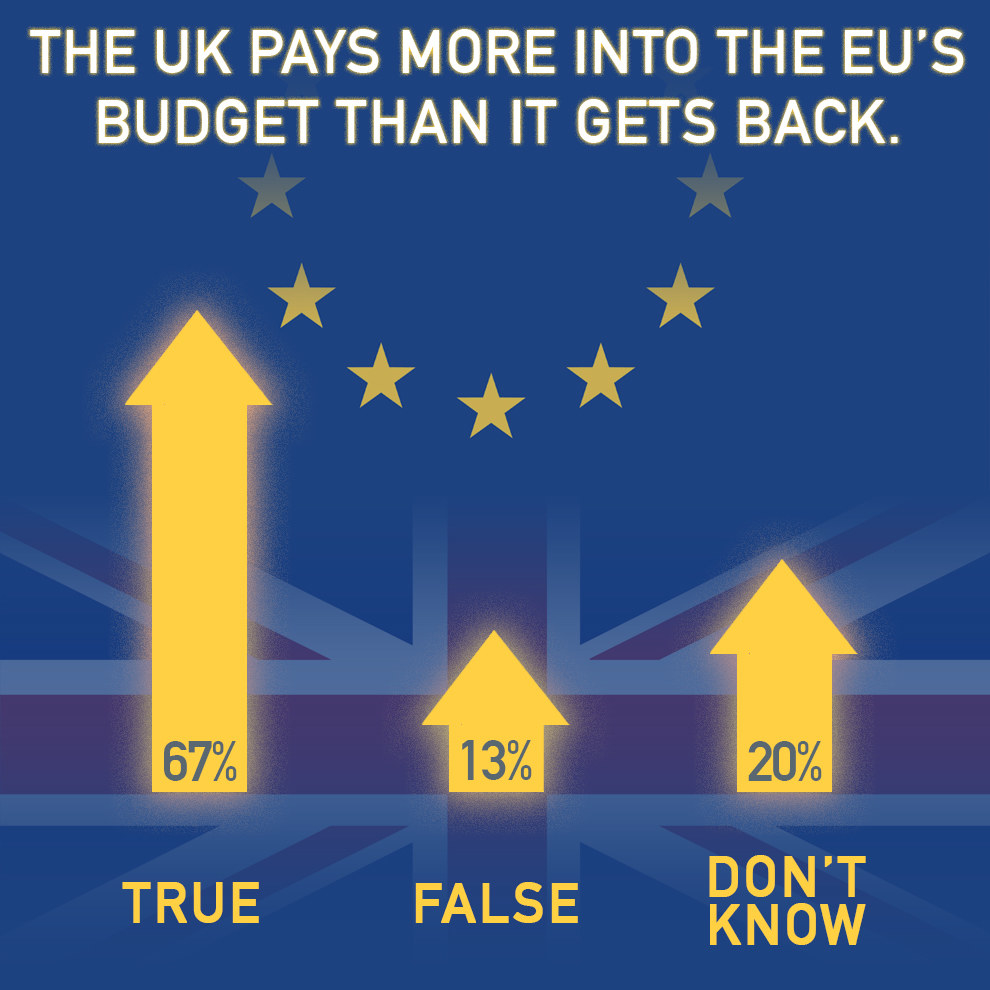
But nearly a quarter thought the UK pays the most to the EU budget – when in fact Germany, France, and Italy pay more.

Brits were much better at picking out the smallest contributors, but underestimated how much western European countries receive from the EU.

Nearly 1 in 4 thought the UK receives the least from the EU budget.
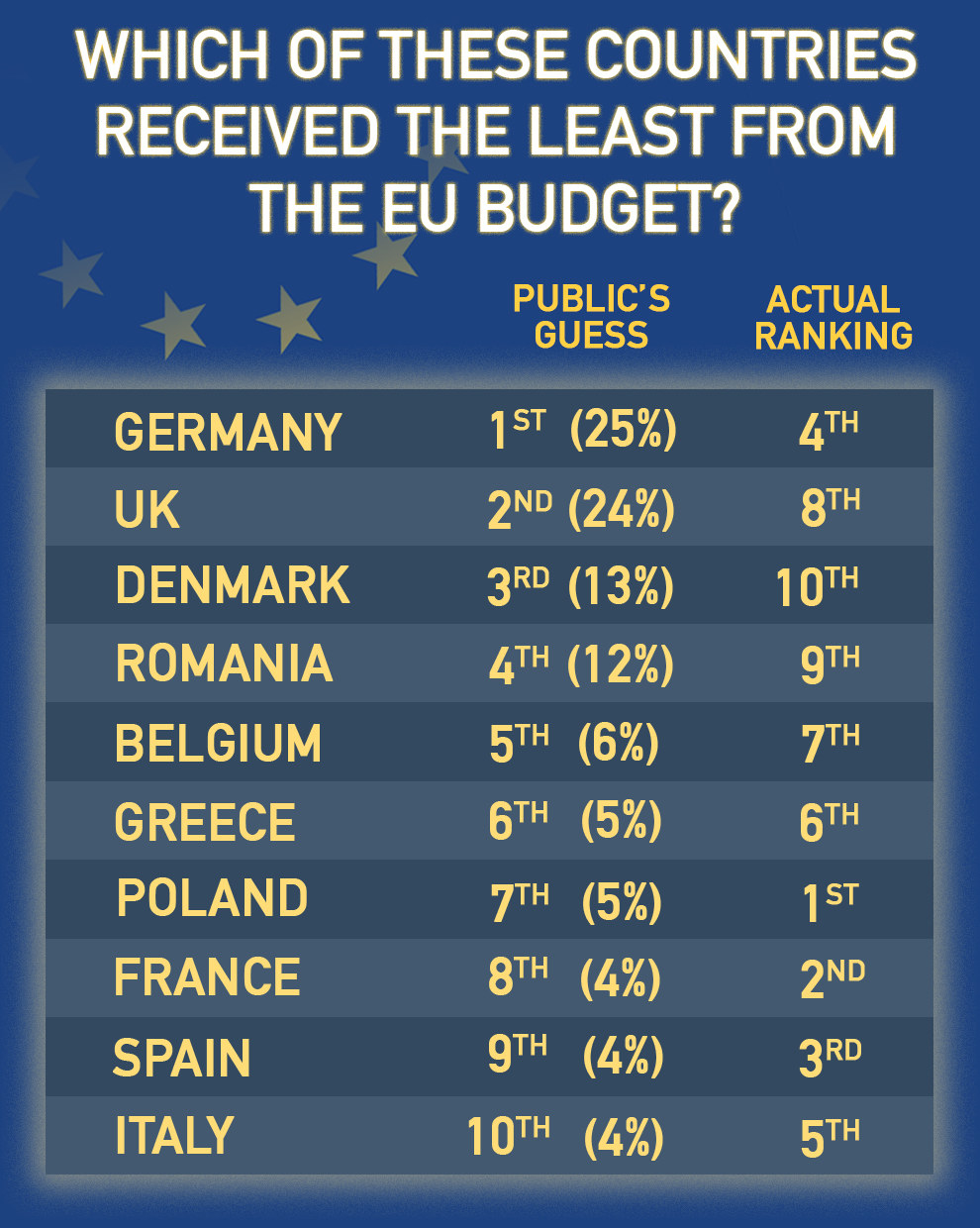
Brits thought the EU spends way more on admin than it actually does.

But underestimated the number of civil servants it employs.

Brits also underestimated investment into the UK by the EU, and overplayed investment by China.
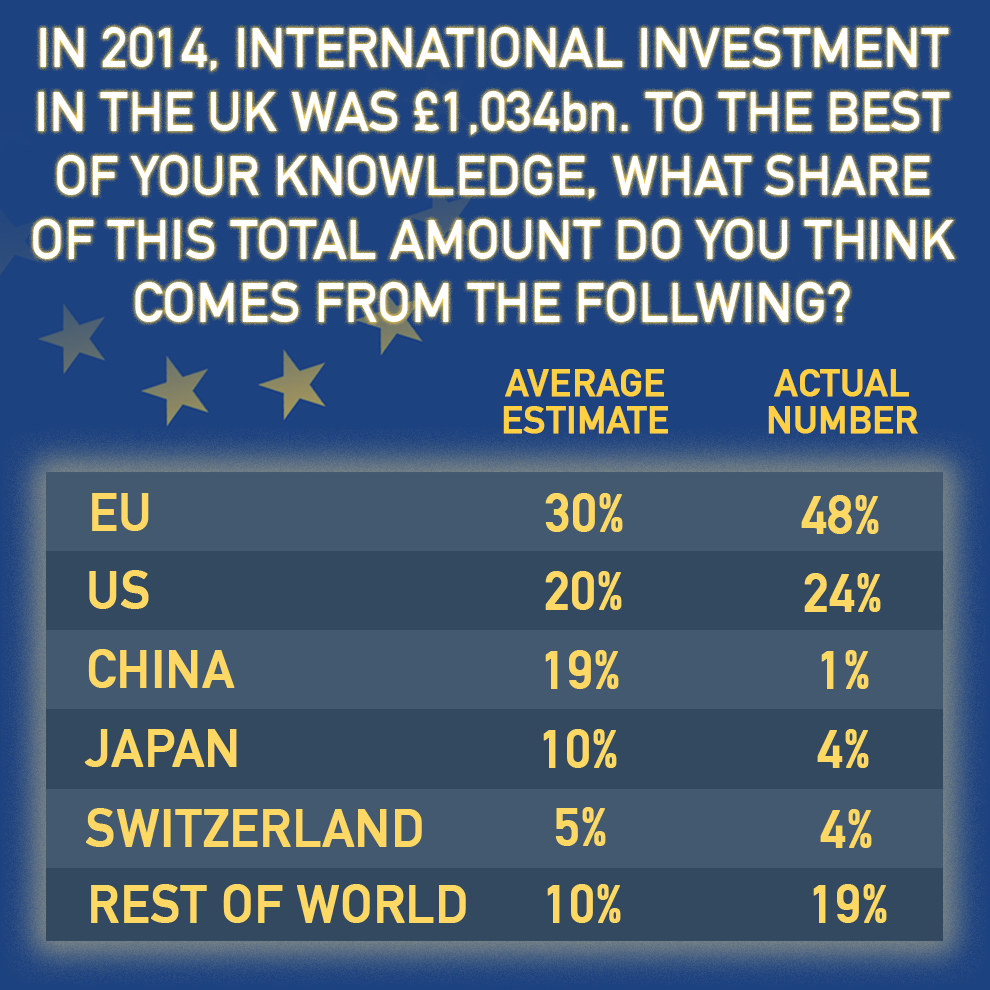
EU migration was overestimated by a factor of three.
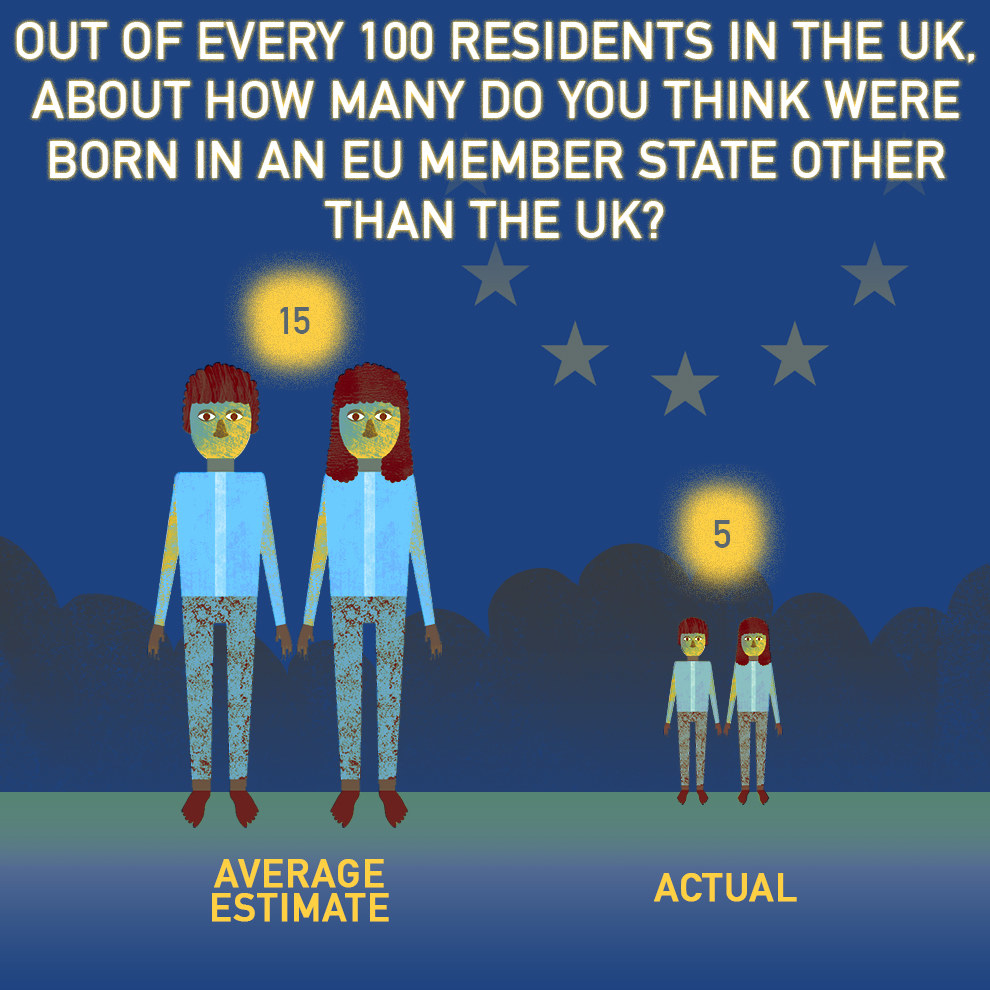
The scale of child benefits sent abroad was also massively overestimated.

Four in ten didn't know that the European parliament is a democratically elected institution. Only 5% could name one of their MEPs, compared to 41% who knew the name of their MP.
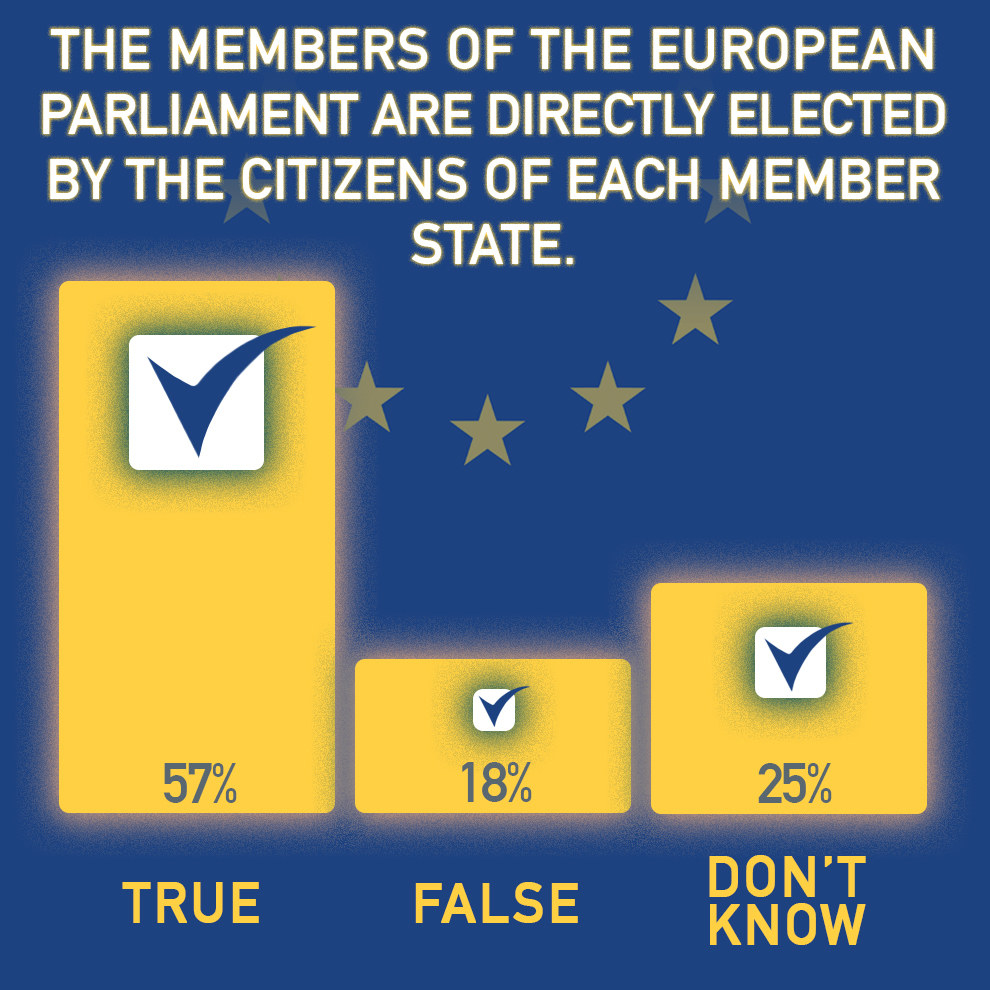
When it came to knowing which laws or restrictions are in place because of the EU, knowledge was mixed. One in eight people thought at least one of the most commonly cited EU "myths" is actually true.
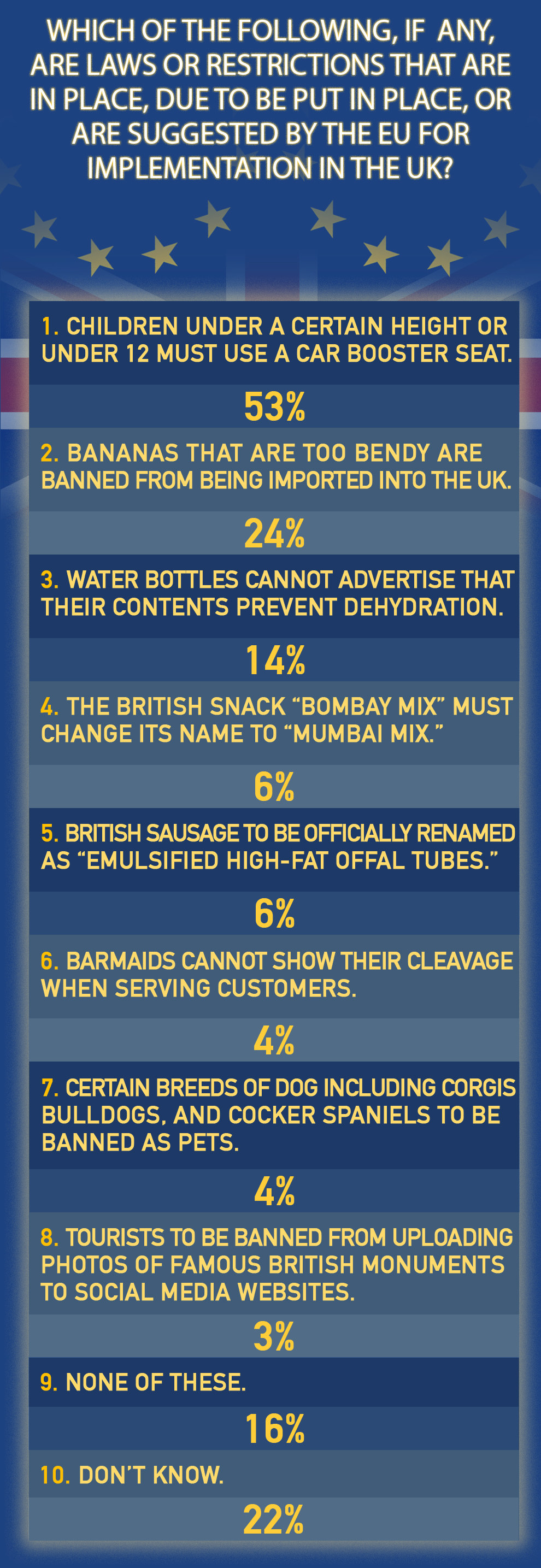
All of the above are false, except for the car booster seat and the regulation water bottles/dehydration.
The popular bendy banana law claim both is and isn’t a Euro-myth. It’s based on real EU law setting out minimum standards for imported bananas – including that they should generally be “free from malformation or abnormal curvature”. But “abnormal curvature” wasn’t intended to mean bendy or more bendy than average – the rule's aim is to stop importers sending boxes of malformed bananas.
Reflecting on the research, Ipsos MORI's Duffy said the survey pointed to "some key communication challenges and opportunities" for both sides of the argument.
"In particular, it seems that while the Remain camp may be winning on the macroeconomic case, people are not convinced this will have any impact on their own standard of living," he said. "So, despite the Remain campaign’s focus on us each being £4,300 worse off if we leave, we’re not making the connection or not believing it.
"'Project fear' will be much less effective if we think it’s only happening to someone else."
Professor Anand Menon, director of the UK in a Changing Europe Initiative and professor of European politics and foreign affairs at King's College London, said:
There are obviously still high levels of ignorance about the EU, which is troubling so close to the referendum. However, it is not so surprising, given the lack of accurate information provided to the public, as well as the mistruths, exaggerations, and scaremongering that have taken place during this campaign. It’s now more imperative than ever that the public can be provided with as much factual information about the EU as possible before they cast their vote.
You can find the full Ipsos MORI poll and data here.
Methodological notes: Fieldwork was conducted between 29 April and 5 May 2016 and 27 and 30 May. In total, 1,000 interviews were conducted using i:Omnibus – Ipsos MORI’s online panel. For the additional wave of fieldwork, a total of 1,083 interviews were conducted. The results have been weighted to reflect the known profile of the adult population in Great Britain. They are weighted on age, gender, social grade, region, and work status. Ipsos MORI has worked with Full Fact, the UK’s independent fact-checking charity, to establish the correct versions of the actual data and facts used.
